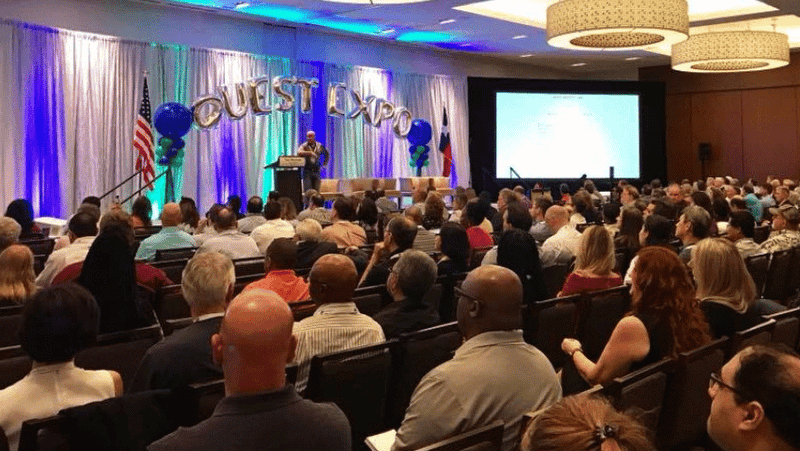Get our e-newsletter for all the exciting updates, events notices and valuable education
After Opening an Account, What's the Next Step?
Learn about the ways to fund your account and get started investing.
Posted on May 6, 2024

Now that your account is open, you can take the next step – funding your account. There are three major ways to fund your IRA, which include making contributions, initiating a transfer, or doing a rollover. You might also be interested in doing a conversion once your accounts are open. Not sure where to start? Here's a closer look at some of the next steps you can take to fund your new Self-Directed IRA.
Contributions
A contribution is money you personally put into an IRA. This option allows you to make an annual contribution from your personal funds. It's important to always consult with a knowledgeable CPA or financial advisor in order to understand how much you may contribute personally and which account offers the most tax advantages for your situation. You may be able to get a tax-deduction for contributing to a Self-Directed Traditional IRA, or tax-free withdrawals with a Self-Directed Roth IRA. But remember - every account has its own rules and contribution limit. View the annual contribution limits for the current year, and remember if you are 50 or older, you can make catch-up contributions as well.
When you make your contributions, they must be made in cash. You have three options when submitting contributions – wire, ACH, or check. If you plan to write a check, please make the check payable to the Quest vesting:
Quest Trust Company FBO (Client Name) IRA # (Acct. Number)
Transfers
A transfer occurs when you move money from one IRA account to another. This option applies to individuals who have an existing IRA held at another company. A transfer occurs between like accounts (e.g., Traditional to Traditional or Roth to Roth). When you move funds from an IRA at one firm to an IRA account managed by another firm, the transfer isn't reported to the IRS and no taxes or penalties are incurred. This is because the money in the original IRA account never actually reached the account owner.
To initiate a transfer, contact the custodian that will be receiving the transferred funds and complete their required paperwork. Click here to view Quest's Transfer Form. Please be aware of the following:
- Your current custodian might require a medallion guarantee stamp. If so, you can obtain one by visiting your current banking branch.
- Your current custodian might require the original transfer form. If that is the case, you will have to send Quest the original, signed transfer form.
- You will need to liquidate any investments prior to Quest sending the Transfer Form to help avoid any delays.
Rollovers
A rollover occurs when an individual wants to move funds over from an old employer plan (e.g. 401k, 403b, etc.). A rollover can also be made between IRAs. To initiate a rollover, you must contact the current administrator of the plan and ask them to roll over the funds to Quest. Because there is no limit to how much you can rollover, this is a great way to increase the funds in your account and give yourself more investment options.
A rollover is considered a distribution and will generate a 1099-R. Provided you deposit the full amount of the distribution into an IRA within 60 days, penalties and taxes will not be assessed. Although direct rollovers are reported to the IRS, they generally aren't taxable since the money was never made payable to the account holder. Please keep in mind, in most cases, you must have had separation of service from the employer to move the funds to an IRA.
There are two ways to complete a rollover:
- Direct Rollover: The payment of funds will be made directly to Quest Trust Company. No taxes will be withheld from the distribution.
- 60-Day Rollover (Indirect Rollover): The funds are paid directly to you. You have 60 days to get the full amount of the distribution into your IRA at your new custodian. Keep in mind, taxes will be withheld from the distribution. You will have to use non-IRA funds to satisfy rolling over the full amount of the distribution. If the funds are not deposited into a retirement account within 60 days, you will be subject to an early withdrawal penalty (if you are younger than 59-1/2) and income taxes. This type of rollover is allowed once per 12 calendar months from the date the rollover was received.
Conversions
A conversion allows you to move funds from a tax-deferred IRA to a post-tax IRA (e.g. Traditional to a Roth). Please be aware that a conversion to a Roth IRA is a taxable event. The non-taxed portion of the converted amount will be added to your modified adjusted gross income for the year. Learn more about Roth conversions in our blog article "Roth Conversions - Who, Why, and How?"
Why should you consider a Roth conversion?
- It's a way to endure tax-free growth if you are unable to participate in a Roth IRA because of income restrictions.
- Pay taxes on the smaller amount now, and watch your earnings grow tax free. By doing a conversion and paying taxes early on, it helps your tax-free bucket of money grow bigger faster.
Important Dates
When making a contribution to your account, please keep in mind these important deadlines.
April 15th Tax Filing Deadline - This is the deadline to make a previous year contribution to a Traditional IRA, Roth IRA, Coverdell ESA, or Health Savings Account.
October 15th Tax Filing Deadline Plus Extensions - This is the deadline to make a previous year contribution to a SEP IRA or SIMPLE IRA.
Once your Self-Directed IRA is funded, you are ready to take the next step and choose your investment to grow your retirement savings. Go to the Investments menu to learn more about investing in alternative assets like real estate, promissory notes, and private entities in your self-directed account. While Quest cannot offer investment advice, we do offer educational webinars on different types of alternative assets and investment strategies, so check out our events calendar to see our upcoming webinars.
We are here to help, so give us a call at 855-386-4727 or schedule a free consultation with an IRA Specialist.








